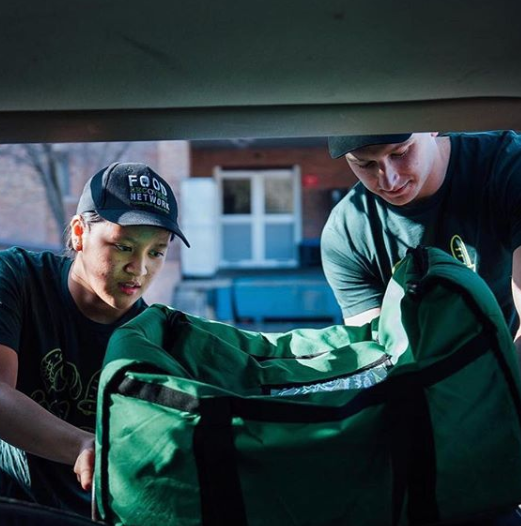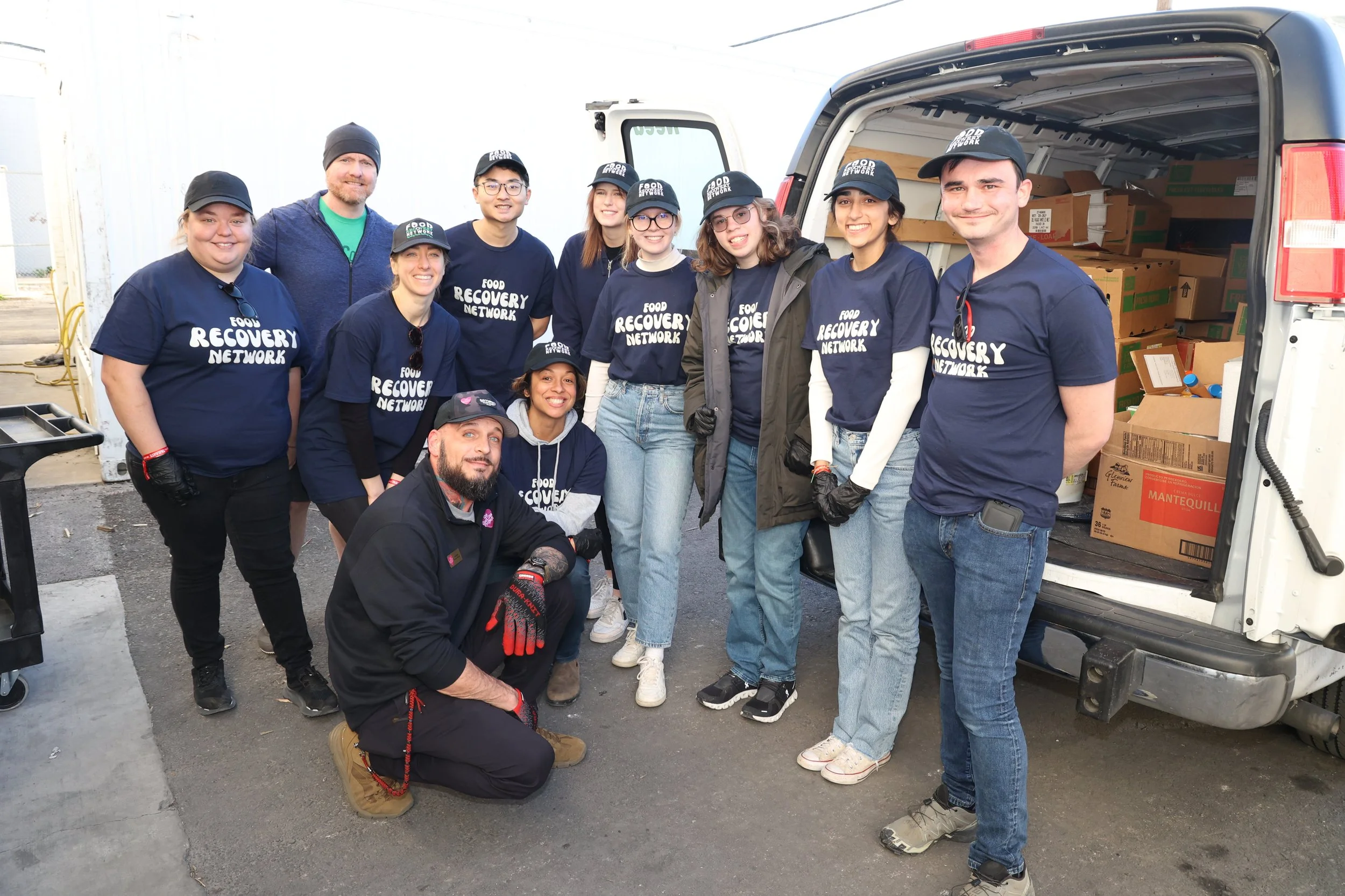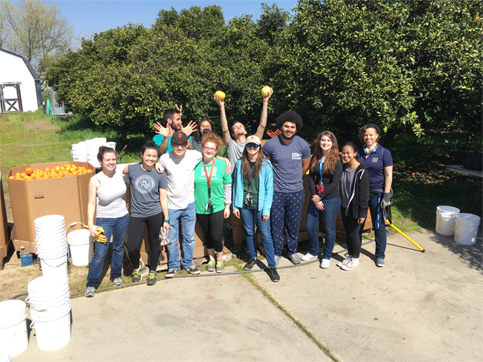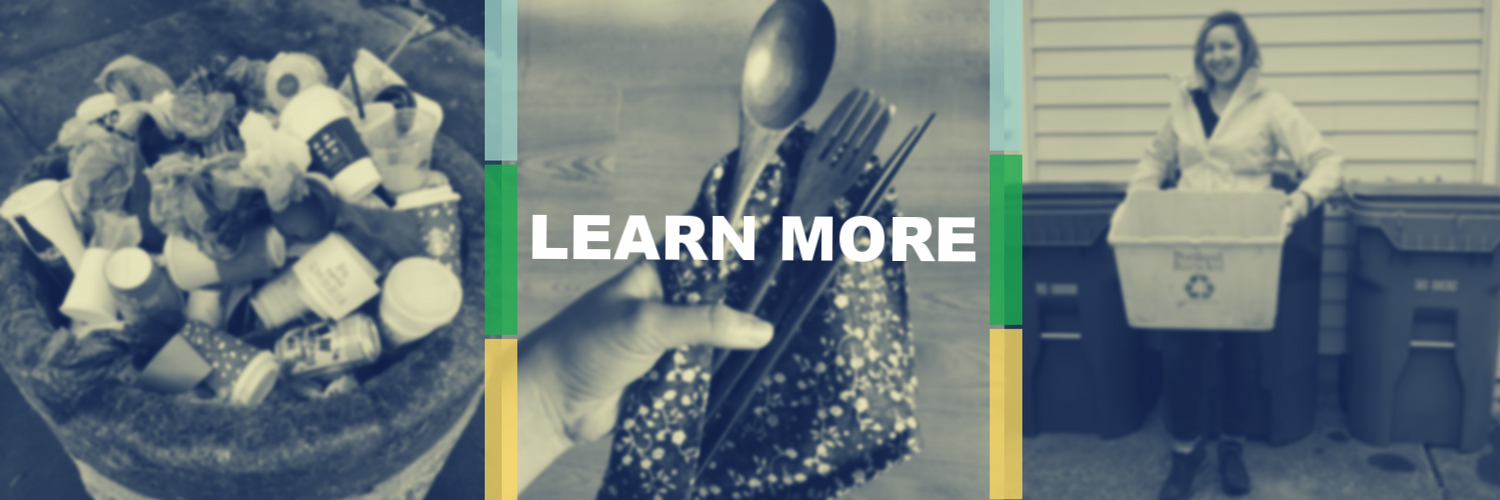As we say goodbye to the last few cold days of the year, it’s time to turn our attention to gleaning. If you haven’t heard, gleaning is the act of collecting excess fresh foods from farms, gardens, farmers markets, grocers, restaurants, state and county fairs and other food-based institutions and businesses for distribution to the poor and hungry. While some chapters have been gleaning for years now and use it as their primary source of recovered food, other chapters are just getting their footing. We talked to one school that’s been successfully gleaning on a small scale for awhile now, but just bravely tackled one of their largest recoveries. California State University, Fresno, led by their Vice President Dalia Dull, successfully managed to recover 3,157 pounds of citrus fruit! Dalia explains their secrets to success in the following interview.
Describe the location you gleaned from. How did you find out that this location needed gleaning services?
The location that we gleaned from this time was a private home with a citrus orchard. It wasn't a commercial farm, but the owner had 170 orange and pomelo trees that he was unable to get harvested and sold this season. The President of our college met the owner at an event and forwarded the request for gleaning services to our club adviser.
This is what a successful (and dare we say “fruitful”) day of gleaning looks like!
What steps did you take to get ready for the event? How early did you start planning it?
We found out about the event only about two weeks before it was scheduled. We needed to hold the event as soon as possible due to the condition of the fruit and the weather, so the planning was pretty rushed. Our adviser contacted our Community Food Bank to orchestrate pickup services. We knew we would be gleaning hundreds of pounds of fruit, and the food bank was able to deliver large bins on palettes, pick them up, transport, and disperse the fruit. Marian (FRN Fresno State’s current President) and I worked to gather volunteers by emailing almost all campus organizations and clubs, including the sororities, fraternities, and our Honors College. These were the main steps to planning the event:
- Contacting the owner of the orchard.
- Contacting and arranging the logistics between us and Community Food Bank.
- Recruiting volunteers.
What were some challenges you faced during the day of the event?
The biggest challenges we faced with this event were getting it organized in time, and recruiting enough volunteers.
Searching for any leftovers
Are there any advantages/disadvantages when it comes to doing these large events versus the smaller, more regular ones your chapter does?
Everyone enjoying the “fruits” of their labor
I have now organized both this large scale gleaning, and several smaller ones, and there are definite advantages and disadvantages to both. With the large gleanings, much more planning is involved because you need many volunteers and it is more complicated to transport the fruit. We probably wouldn't have been able to accomplish what we did without the Community Food Bank's help. However, you get many more people involved, and they always love gleaning after they do it once. You also recover significantly more fruit, and our efforts will improve the next crop for the homeowner.
With small scale gleanings, it is easier to plan on shorter notice because you really only need a few volunteers (depending on how many pickers you have). We have three pickers, so we usually aim for 4 volunteers. The fruit can be transported in our cars and it is easier to find recipients for the fruit because there simply isn't as much. In addition, you spread the word about FRN very quickly because homeowners share our information with neighbors and friends. The homeowners are always so excited for us to come and do something beneficial with their fruit trees, and we do meet such interesting and kind people! You can also reach multiple locations in a day when each home has only one or two trees.
Is there any advice you'd give to chapters looking to start gleaning?
For new chapters just starting out with gleaning, I would suggest making a little card with the chapter's contact info and a brief explanation of their services that they can give out to homeowners. We go door-to-door in neighborhoods with a lot of trees and leave our card so they can contact us and we can schedule a day. Also, it is important to decide beforehand where the fruit will go, and make sure there is a location available to donate the fruit. Bins or buckets are important, too. Gleaning is an awesome experience, and most people truly find it fun. When the weather is nice, and you have some music playing, everyone has a great time and the outcome is so rewarding!














